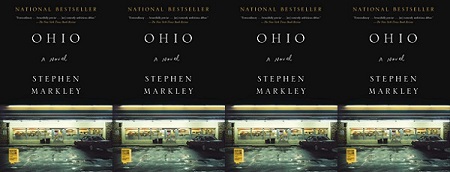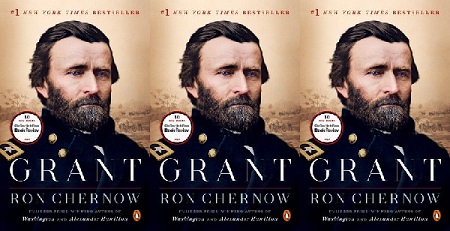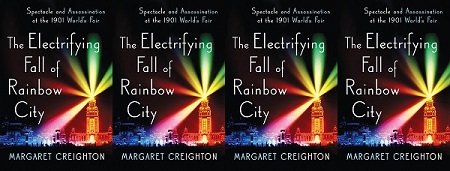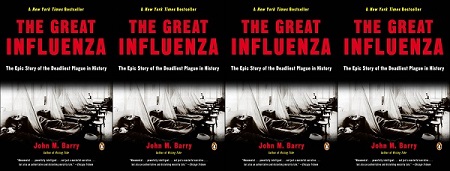Matt Lynn Digital had respectable year reading in 2020. Today we walk down memory lane for the 40 book reviews made in 2020. We’ll refresh your memory of the books we felt were the biggest successes first. Look for repeat efforts in this listing from Vince Flynn, Stephen King and Ernest Hemingway. Charles Dickens and Erik Larson, while having a single book in the 40 this year, have been reviewed here in the past.

We offered two books rated at 4.5-stars on a scale of one-to-five in 2020. Kerry Patterson, Joseph Grenny, Al Switzler and Ron McMillan combined to write Crucial Conversations: Tools for Talking When Stakes Are High. The book shares specific skills to improve listening, facilitation, and safe feelings when having productive, meaningful conversations. Charles Dickens offered a satiric “Dark” novel in the form of Hard Times. Hard Times comments on the harsh realities for families with business and governmental policies designed to fight against them.

We rated seven nonfiction works at 4.25-stars in 2020, with the book Mafia Cop Killers in Akron: The Gang War Before Prohibition by Mark J. Price leading the listing. Fans of true crime would appreciate the journalistic tendencies of the writer for this piece. The Pulitzer Prize winning book Evicted: Poverty and Profit in the American City by Matthew Desmond takes a serious look into extreme poverty, affordable housing and economic exploitation. Richard Rothstein takes a different look at a similar subject with the book The Color of Law: A Forgotten History of How Our Government Segregated America. How to Win Friends and Influence People by Dale Carnegie rates well as a book offering training on public speaking and leadership development. The book Range: Why Generalists Triumph in a Specialized World by David Epstein turns the notion of specialization in life or the workplace on its head in an interesting way. Carmine Gallo offers practical advice through a series of relatable stories in the book The Storyteller’s Secret: From TED Speakers to Business Legends, Why Some Ideas Catch On and Others Don’t. Erik Larson looks into the early 20th century with his narrative nonfiction book Isaac’s Storm: A Man, a Time, and the Deadliest Hurricane in History.

Josh Ritter offers one of the two fictional works earning 4.25-stars from Matt Lynn Digital with the book Bright’s Passage. The storytelling approach uniquely and ambitiously increases emotional tension across timelines with a revelation that really works. A similar, growing tension makes the book Ohio: A Novel by Stephen Markley in offering a stunning yet mysterious sense of vengeance and confused understanding.

The book Unsolved Murders and Disappearances in Northeast Ohio by Jane Ann Turzillo, as another work of true crime, offers the first of nine nonfiction books earning 4.0-stars on a scale of one-to-five in 2020. The Robert A. Musson book Akron Beer: A History of Brewing in the Rubber City sticks in the same region while looking into a niche market impacted by Prohibition and other economic factors through time. Phil Rosenthal looks into the life of a sitcom writer in the book You’re Lucky You’re Funny: How Life Becomes a Sitcom. The book A Moveable Feast by Ernest Hemingway autobiographically looks at the life of the writer, autobiographically as did Rosenthal. Ron Chernow offers a revealing biography of eighteenth US president Ulysses S. Grant with Grant. Jonathan Kozol returns to a theme of opportunity inequality running through our books this year with the book Fire in the Ashes: Twenty-Five Years Among the Poorest Children in America. Tara Westover‘s book Educated: A Memoir is unique in offering a firsthand account of educational difficulty prompted by extreme familial difficulty. Rachel Carson started an environmental movement with her book Silent Spring. Michael Michalko approaches fundamental creativity as a learned approach with the book Thinkertoys: A Handbook of Creative-Thinking Techniques.

The Ernest Hemingway collection of short stories called In Our Time begins a group of fictional books earning a rating of 4.0-stars by Matt Lynn Digital. Romantic chaos is the fare of the Ford Madox Ford book The Good Soldier: A Tale of Passion. The character Mitch Rapp makes his first appearance in our listing with Vince Flynn‘s book Extreme Measures. The Stand by Stephen King proved to be a post-apocalyptic dark fantasy book to be reckoned with this year.

The book Alexander the Great: His Life and His Mysterious Death by Anthony Everitt is a review of the life of the military and political leader Alexander the Great, who lived almost 2,400 years ago. The first of six books earning 3.75-stars for nonfiction. Getting more contemporary, the World’s Fair of 1901 was the fare of Margaret Creighton‘s narrative nonfiction book The Electrifying Fall of Rainbow City: Spectacle and Assassination at the 1901 World’s Fair. The exercise of political power gets earnest reviews with the David Maraniss book A Good American Family: The Red Scare and My Father, the Tom Brokaw book The Fall of Richard Nixon: A Reporter Remembers Watergate, and the Peter Bergen book Trump and His Generals: The Cost of Chaos. The Robin DiAngelo book White Fragility: Why It’s So Hard for White People to Talk About Racism admittedly is uncomfortable subject matter for many that serves a legitimate purpose that all are not ready to confront.

The fictional work The Return of the Soldier by Rebecca West, in earning 3.75-stars by Matt Lynn Digital, plays in a similar playground to The Good Soldier: A Tale of Passion by Ford Madox Ford. 2009 Pulitzer Prize winning book Olive Kitteridge by Elizabeth Strout brings together short stories like Hemingway‘s In Our Time. The Dead Zone by Stephen King brings the notion of multiple head traumas to an extrasensory tale mixed with political intrigue. Consent to Kill by Vince Flynn began a sequence of three books featuring Mitch Rapp to earn 3.75-stars by Matt Lynn Digital. The others were Act of Treason and Protect and Defend.

The Great Influenza: The Story of the Deadliest Pandemic in History as written by John M. Barry and Crisis in the Red Zone: The Story of the Deadliest Ebola Outbreak in History, and of the Outbreaks to Come as written by Richard Preston are nonfiction accounts of the response to deadly disease that, if read by people in leadership, could offer learning for how to effectively respond to pandemic. Both earned a 3.5-rating from Matt Lynn Digital.

The Pro Football Historical Abstract: A Hardcore Fan’s Guide to All-Time Player Rankings by Sean Lahman offered an interesting book for my analytical style. The work is speculative nonfiction. Bentley Little wrote The Consultant, a work of fiction that came recommended by Stephen King. Both offered an interesting premise with a something that we had hoped would resonate with us a bit more than they did. That they earned 3-stars on a scale of one-to-five rings true for us today.
Share the Matt Lynn Digital blog with your friends if you see value in what we are doing. Before the end of this year, a similar review for entries on movies will also be coming. We feel these reviews provide excellent content that we would like to continue offering.
Matt – Tuesday, December 29, 2020


 (Ron Chernow, author of the renowned biography
(Ron Chernow, author of the renowned biography  (“Ulysses S. Grant”, (1864) was taken by photographer Mathew Brady outside Grant’s tent at Cold Harbor, Va., in June 1864).
(“Ulysses S. Grant”, (1864) was taken by photographer Mathew Brady outside Grant’s tent at Cold Harbor, Va., in June 1864). (Ulysses S. Grant sometime in the period after the American Civil War).
(Ulysses S. Grant sometime in the period after the American Civil War). (Ulysses S. Grant served as president from March 4, 1869 to March 4, 1877).
(Ulysses S. Grant served as president from March 4, 1869 to March 4, 1877). (Ulysses S. Grant on the American
(Ulysses S. Grant on the American